Military journalist Oleh Mashchenko has reported from several hotspots around the world but never anticipated that war would come to his native Kyiv. He refused to evacuate the capital, believing that news from Kyiv was crucial for readers.
Working around the clock.
NUJU correspondents met Oleh Mashchenko near a Kyiv stronghold of resilience. In these times, he says, working in any conditions is necessary. People need news, and wasting time is a luxury now.
During the initial days of the full-scale war, there was a particularly heavy workload. There was no time to be afraid or think about oneself.
— There was a huge need for news,— Oleh starts. — Social media platforms were still struggling, and not everyone was accustomed to Telegram channels. Traffic on our website indicated this trend: people were visiting and reading all the news.
Oleh Mashchenko is an editor at the Ukrainski Novyny news agency. He chose to stay in his native Kyiv when the Great War began, actively continuing his journalistic work.
— My wife and I – she’s a journalist as well – decided not to leave. We created a schedule at the agency, allowing for mutual coverage. There were no blackouts then. You could stand in line for bread for four hours and then return to work. And back then, we were working around the clock,— the journalist continues.
Working entails overcoming difficulties like power outages, lack of internet, and absence of heat, even amidst the sound of sirens and explosions.
— We’ve had airstrikes in our district, but we’re holding on. Foreign journalists I know called and asked why I’m not leaving. I replied, ‘I’m a military person, I know how to handle weapons. And if the Russians come to Kyiv, they’ll get firing points from every window,’— Oleh Mashchenko confidently states.
“My first exposure to shelling was far from Ukraine.”
Transnistria and Chechnya, Sierra Leone, Liberia and Kosovo, Iraq, and the Israeli-Lebanese conflict – Oleh has been to many hotspots alongside the Ukrainian peacekeeping mission. For this, he was awarded the title “Honored Journalist of Ukraine.” Professionally, Oleh Mashchenko is a commissioned officer, having graduated from the Lviv Higher Military-Political School’s journalism department.
— My first exposure to shelling was far from Ukraine. It was in Iraq: I had four deployments there with our peacekeepers. I knew what airstrikes were from those years. I didn’t want to believe that Russia would wage war on Ukraine, but I foresaw that it could happen,— our interlocutor notes.
The first armed conflict Oleh had to cover was the Transnistrian conflict. He witnessed explosions, refugees, and Ukrainian soldiers. However, his strongest impression was observing the aftermath of the Russian forces’ assault on the Chechen capital, Grozny. Now, the journalist sees how he can compare the horrifying image he witnessed in February 1997 to the present: with destroyed buildings and streets in Kharkiv, Mariupol, Bucha, Irpin…
“In this war, in my understanding, there is a clear name – Ukrainian Patriotic War.”
— They invaded us, killing, raping, looting, and destroying our people. In my understanding, this war has a clear name – the Ukrainian Patriotic War, because it concerns the very existence of our state. And if a journalist personally went through all this hell, lost loved ones, then what he talks about is an objective reality,— Oleh explains his perspective.
Oleh is not intimidated by shelling; he believes one can adapt to discomfort.
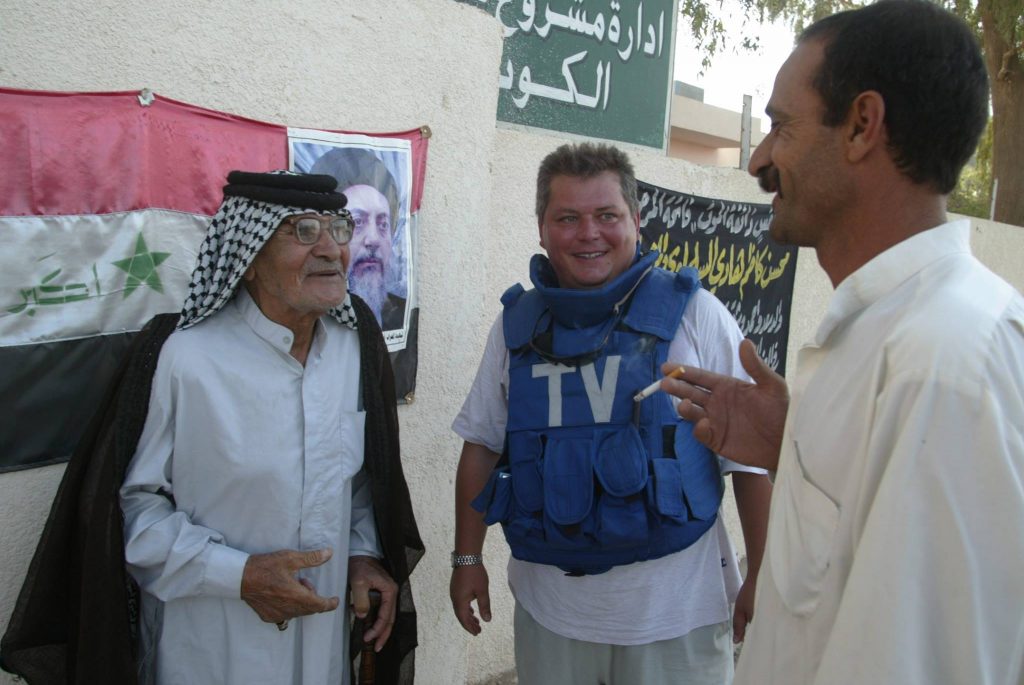
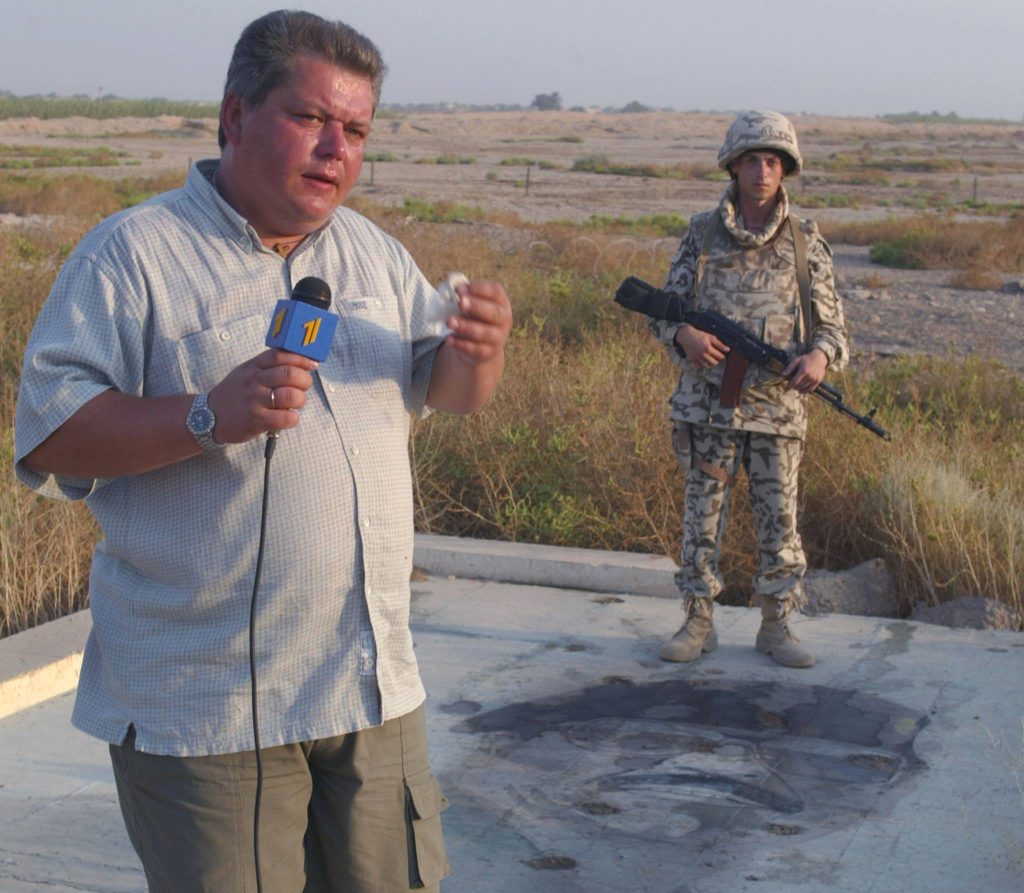
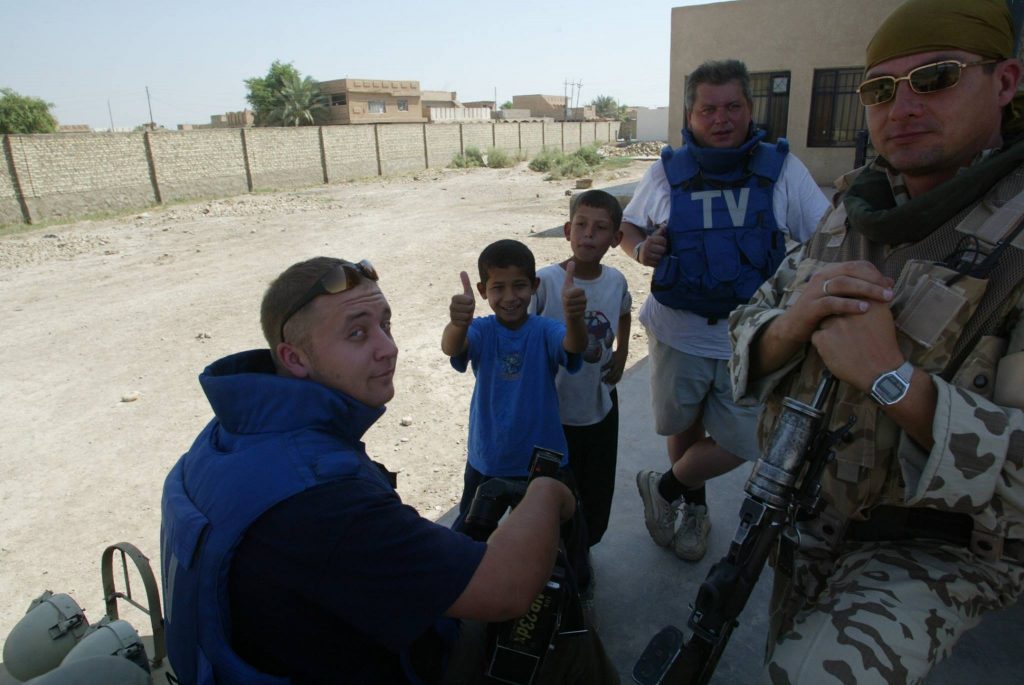
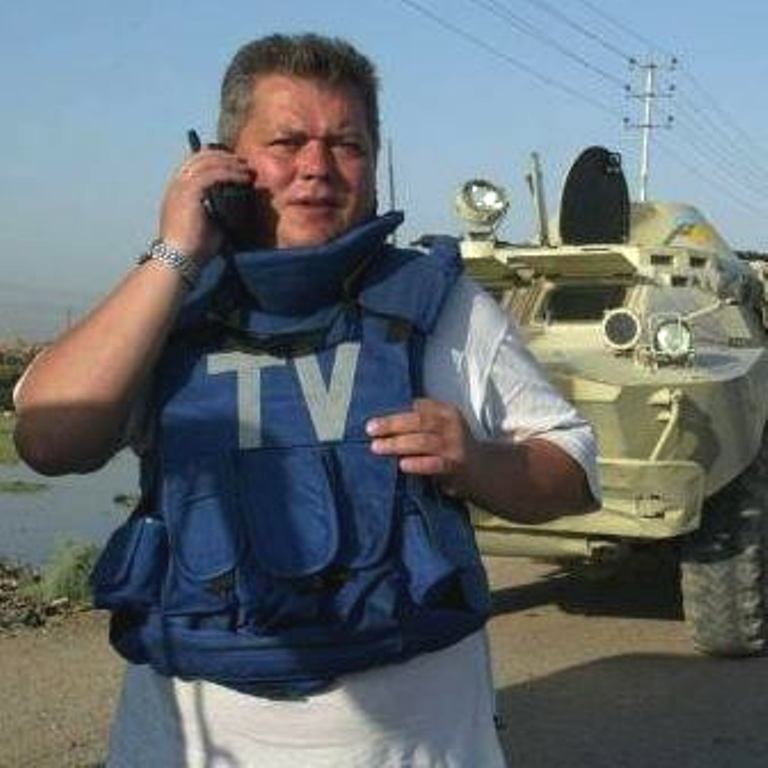
— I experienced something similar after the collapse of the USSR when similar problems arose: people had to go around the district to find milk for their small children. But now, times have changed, and people are different. One of the vivid memories from the war’s early days is the work of volunteers who quickly organized and rallied. This work continues and evolves though the process has been established. At the beginning of the war, many found it strange that young men and women were delivering, unloading, distributing, and genuinely saving lives, especially those of the elderly,— Oleh recalls March 2022.
Now, Oleh lives in the new rhythm of Ukrainian journalism. He upholds the information defense in one of the most popular news agencies. A courageous man who has been to various hotspots is confident that Ukraine will win on all fronts, provided that everyone, like him, works “24/7.”
Journalist Oleh Mashchenko, experienced in conflict reporting, chose to stay in Kyiv despite the war. He believes the news is crucial, working tirelessly even through power cuts. Comparing the situation to past conflict zones, he sees this as a Ukrainian Patriotic War for survival. Undeterred, he draws strength from coping with challenges before and praises volunteers’ unity during the war’s start. Now a vital part of Ukraine’s journalism, he emphasizes the importance of constant dedication to the nation’s success.
This series, titled Executed Free Speech, is created as part of a project Drawing Ukrainian And International Audience’s Attention To Serious Violations Of Human Rights And Crimes Against Journalists And Mass Media By The Russian Federation, which is performed by the National Union of Journalists of Ukraine, with support from the Swedish non-profit organization Civil Rights Defenders.
JOURNALISTS ARE IMPORTANT. Stories of Life and Work in Conditions of War is a cycle of materials prepared by the team of the NUJU with the support of the Swedish human rights organization Civil Rights Defenders.
#CRD

 THE NATIONAL UNION OF
JOURNALISTS OF UKRAINE
THE NATIONAL UNION OF
JOURNALISTS OF UKRAINE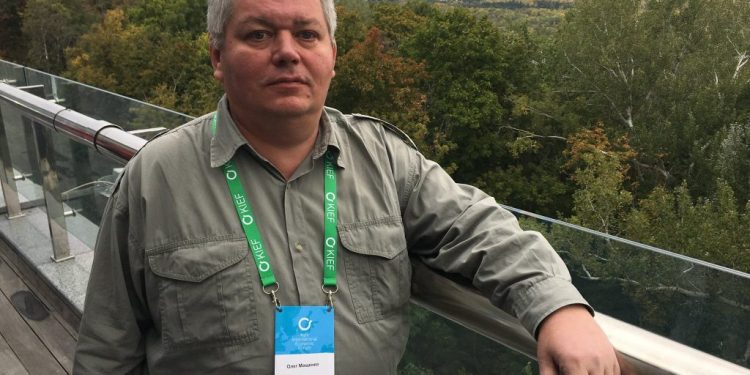
















Discussion about this post